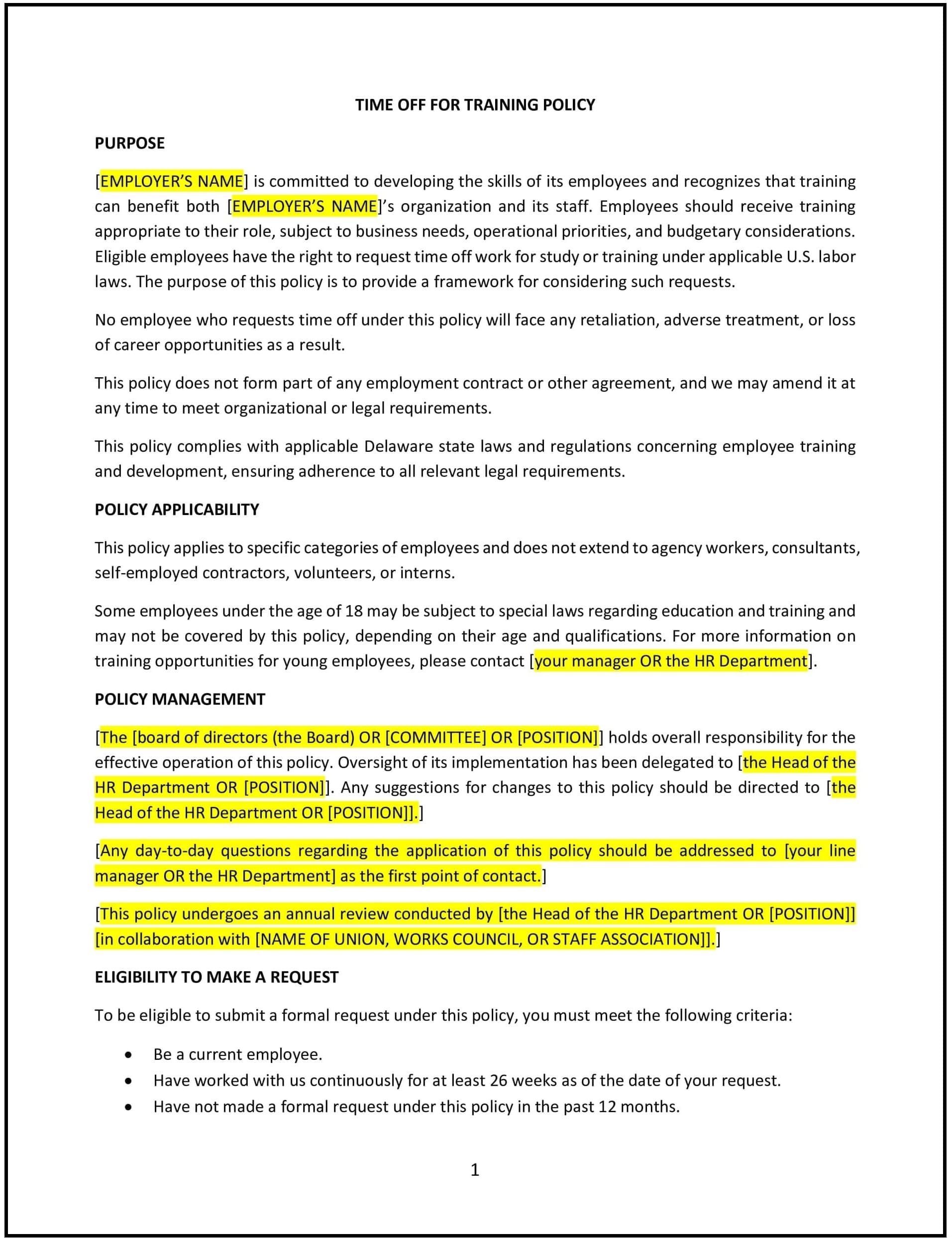Time off for training policy (Delaware): Free template
Got contracts to review? While you're here for policies, let Cobrief make contract review effortless—start your free review now.

Customize this template for free
Time off for training policy (Delaware)
A time off for training policy helps Delaware businesses provide employees with opportunities to enhance their skills and knowledge while ensuring minimal disruption to workplace operations. This policy outlines eligibility, types of training covered, and procedures for requesting leave, promoting professional development and compliance with Delaware labor laws.
By implementing this policy, businesses can invest in employee growth, improve productivity, and support long-term success.
How to use this time off for training policy (Delaware)
- Define eligible training: Specify the types of training covered by the policy, such as job-related certifications, professional development courses, or mandatory compliance training.
- Outline eligibility criteria: Clarify which employees are eligible for training leave based on employment type, tenure, and relevance of the training to their role.
- Establish request procedures: Include steps for requesting time off, such as submitting a written application with details about the training program, schedule, and costs.
- Address compensation: State whether training leave is paid, unpaid, or partially reimbursed, and clarify any conditions for payment or reimbursement.
- Ensure manager approval: Require employees to obtain approval from their manager or supervisor to ensure alignment with business priorities.
- Monitor training outcomes: Encourage employees to share insights or certifications earned during training to track the program’s impact on performance.
Benefits of using this time off for training policy (Delaware)
This policy offers several benefits for Delaware businesses:
- Enhances employee skills: Encourages professional growth, enabling employees to contribute more effectively to business goals.
- Improves retention: Demonstrates the company’s investment in employees, boosting morale and loyalty.
- Supports compliance: Ensures employees complete required training, such as safety or legal compliance courses, reducing legal risks.
- Increases productivity: Equips employees with updated knowledge and skills, enhancing workplace efficiency.
- Promotes transparency: Provides a structured framework for managing training leave, reducing misunderstandings.
Tips for using this time off for training policy (Delaware)
- Communicate the policy clearly: Ensure all employees and managers understand the guidelines for requesting and approving training leave.
- Prioritize alignment: Encourage employees to select training programs that align with their job responsibilities and company objectives.
- Track participation: Maintain records of training programs attended, costs incurred, and certifications earned for accountability and transparency.
- Offer flexibility: Consider accommodating alternative schedules or virtual training options to minimize disruptions.
- Review regularly: Update the policy as needed to reflect changes in Delaware laws, industry standards, or business needs.